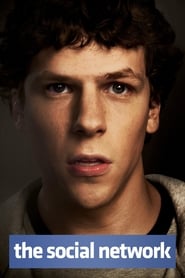The Social Network is not a cruel portrait of any particular real-world person called “Mark Zuckerberg.” It’s a cruel portrait of us: 500 million sentient people entrapped in the recent careless thoughts of a Harvard sophomore.
— Zadie Smith (The New York Review of Books)
Perhaps The Social Network displays almost nothing of life on Facebook because Fincher doesn’t believe any [such life] exists.[…]
In one of the movie’s critical scenes, [the] girlfriend [of Mark's] business partner [Eduardo] gauchely requests an Appletini; Sean, acting princely, orders Appletinis all round. It’s a precis of what life will later become on Facebook: we’ll all have Appletinis and we’ll all Like them, then we’ll Tag the photo and Friend the vodka company’s Fan Page so that the boss can check to see that we had fun.
[…]
Fincher’s Harvard [is] a shell game of empty heritage fronts bathed in his signature green toxic light, a place where private clubs dangle a vision of wealth involving dreary or fake ecstasy for the baseball-cap-wearing set. (In fact, it’s not Harvard, which shunned the film, it’s Johns Hopkins with various Cambridge landmarks inserted, one example of the film’s endless but subtle sleight of hand.)
[…]
The Social Network is a film made for [a] zeitgeist in which the question of rebellion is off the radar. Mark’s company spies on its users, trading a social experience for a gold mine of personal data — it’s a form of corporate hacking into the private realm rather than vice versa. The mythology of hackers champions their ability to disrupt the fabric of power, but Facebook threatens this utopian vision of the Internet as a clandestine and anonymous free zone and pirate bay of illicitness, copyright infringement, perversion, illegality, haters, trolls, hackers, leakers, and multiple identities.
[…]
Mark’s description of his product in the film reveals that it’s not an alternative to but rather a simulation of “the entire social experience of college.” The film’s rendition of that real “experience” leads to questions about its value—is the reality of college really any fun at all? Is life fun, and if so, why would Facebook ever develop into a problem? “This is pathetic,” says a girl as she checks out the original Facemash
project, but what’s actually happening at Harvard doesn’t appear any less pathetic.[…]
During the climax of The Social Network, Eduardo discovers Mark’s betrayal and smashes his friend’s computer. The act reveals a thwarted desire for intimacy—it’s a physical confrontation, a real fight that nevertheless raises the hope of messy human contact. For a moment the corporation’s ideal programmer is unnerved, but mostly he remains “wired in,” another company term for shutting out the world.
— J. M. Tyree (Film Quarterly)
Synopsis: In 2003, Harvard undergrad and computer programmer Mark Zuckerberg begins work on a new concept that eventually turns into the global social network known as Facebook. Six years later, Mark is one of the youngest billionaires ever, but his unprecedented success leads to both personal and legal complications when he ends up on the receiving end of two lawsuits, one involving his former friend.

